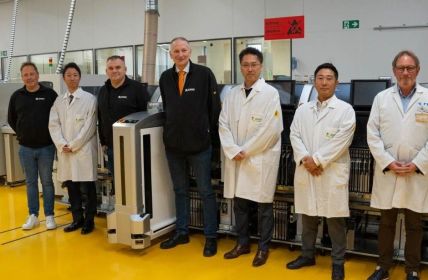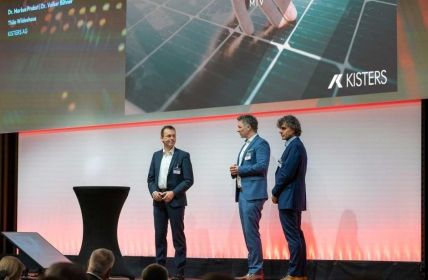The communications group Vodafone has set new milestones in its 5G infrastructure project with the commissioning of new mobile communications stations in the Düren district. The plan is to network 16 more locations with broadband technology by mid-2022. The ultimate aim is to connect everyone in the region with the new technology.
Table of Contents: What awaits you in this article
5G infrastructure: retrofitting existing facilities
Vodafone’s goal of area-wide coverage with 5G in the Düren district can often only be achieved at the moment by upgrading the current LTE infrastructure. To this end, the company will additionally install its antennas at the 86 mobile network sites known to date to enable faster connections and higher volumes. Church steeples, roofs of office and residential buildings, and observation towers and masts will be upgraded in this way.
5G infrastructure: 12 more LTE project for the county
Currently, 99 percent of county residents are connected to both Vodafone’s mobile wireless network and broadband network. The company plans to implement twelve more LTE construction projects by mid-2022. The next station will be built in Tietz to eliminate any radio gaps that are still present and to implement an initial connection. Five further LTE sites are planned in Düren, four in Jülich and one each in Merzenich and Hürtgenwald.
5G infrastructure: network revolution for many segments
In mobile communications, the 5 technology is already creating many benefits for its users. Faster loading times than ever before are one of the reasons for the spread of live streams of cultural, sporting and economic events. Initial services in the field of virtual and augmented realities provide a glimpse of revolutionary future applications.
In addition, the standard enables digital links in real time, which lays the foundation for many ambitious future technologies. Networking in the automotive industry and in healthcare will enter completely new spheres as a result of this upcoming standard, as will logistics, mechanical engineering and education. At the heart of this technical revolution is above all the enormous increase in speed and capacity that 5G will bring. Latencies in milliseconds and up to 64 end devices simultaneously via one router testify to the tremendous potential for future developments.
Vodafone: Driving force in the expansion of digital infrastructure
Vodafone, which originally started out as a pure mobile communications company, has now become one of the largest providers of Internet technology and TV services. 50 percent of all Germans are now networked with the company. This includes both private end users and all infrastructure operators in business, politics and healthcare. The company is now the market leader in mobile communications and in the TV segment.
Vodafone Germany is considered one of the main drivers in the expansion of the domestic digital infrastructure. Its fiber-optic network connects it to 24 million customers, 22 million of whom have connections at gigabit speeds. The plan is to equip two-thirds of all Germans with it by 2022. Today, Vodafone’s 4G network already reaches 98 percent of users. Its narrowband IoT (machine network) for the industrial sector already covers 97 percent of Germany’s surface area.
The first 5G network in Germany has been operated by Vodafone since 2019. Currently, this technology is already used by 20 million people in this country. The planned expansion by the end of 2021 is expected to give 30 million access to it. Vodafone has more than 300 million users worldwide and connects 123 million installations with the Internet of Things (IoT).














